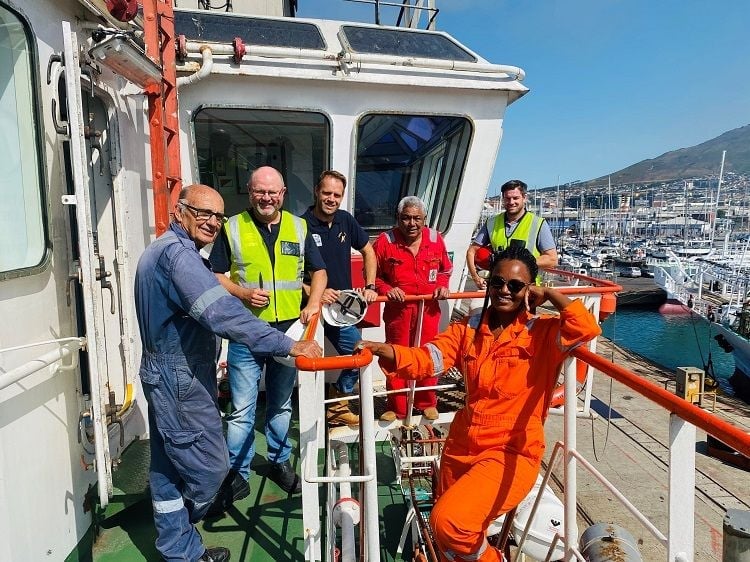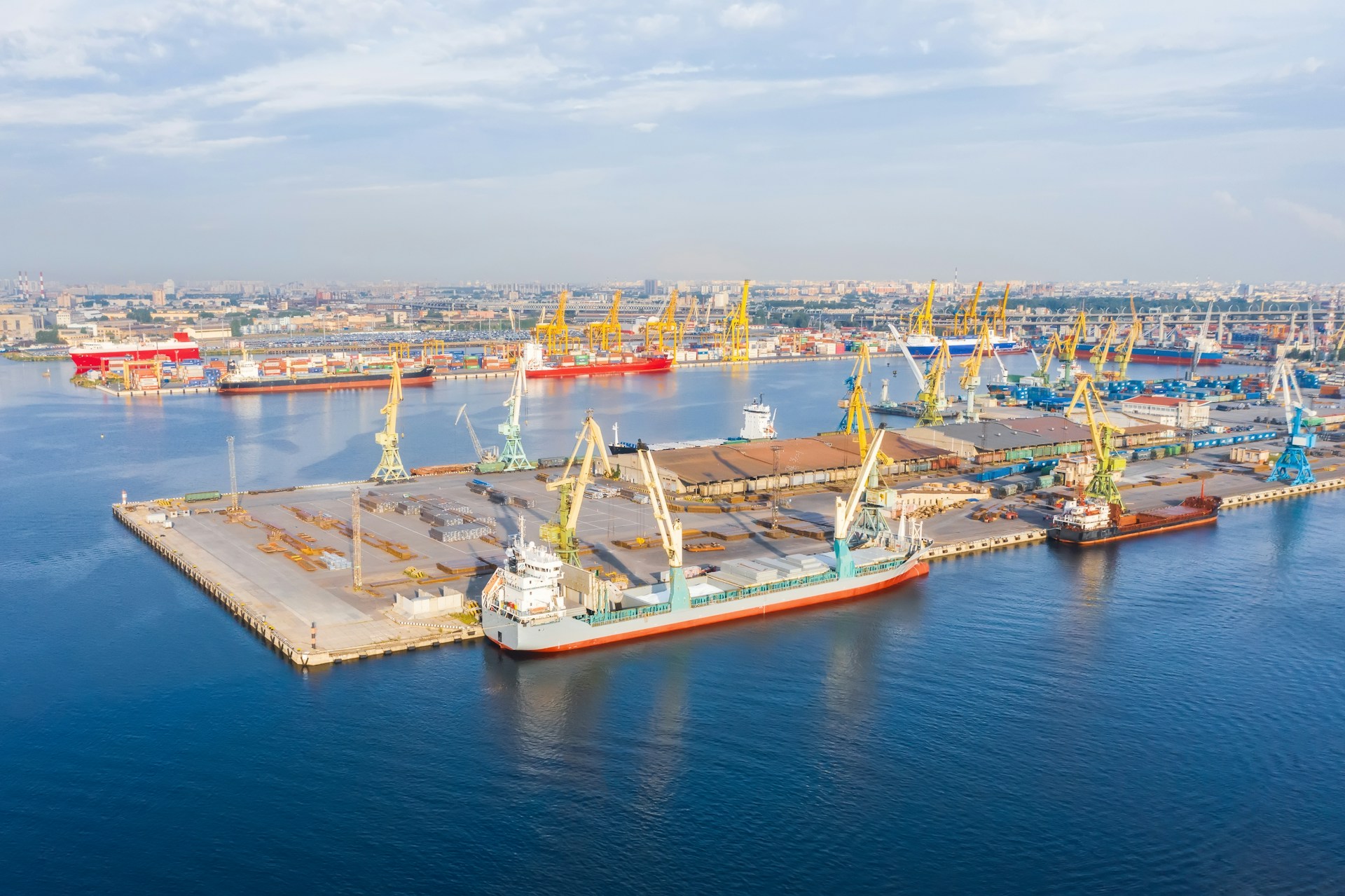Shore-Based Maritime Jobs: Marine Regulatory Authority Jobs

In this series of articles we’re taking a closer look at shore-based maritime jobs and exploring careers ashore as varied as maritime lecturer, ship broker and crew manager. In this post, we’re going to check out working at a maritime regulatory authority.
Keep in mind that the exact nature of the job can, and very probably will, vary depending on the country you are in and this is meant to be a general guide only for anyone who is either thinking about finding a maritime job ashore after working in a seafarer’s job, or for those who are interested in developing a maritime career from scratch.
If you’re already working at sea, finding work as an ex-seafarer at a maritime regulatory authority can be a rewarding career transition, leveraging your sea experience and maritime knowledge in a regulatory and administrative capacity. But what exactly is a maritime regulatory authority and what do they do?
What is a maritime regulatory authority?
A maritime regulatory authority is a government or quasi-governmental body responsible for overseeing and regulating maritime activities within a specific jurisdiction. These authorities play a crucial role in ensuring the safety, security, and environmental sustainability of maritime operations.
Their responsibilities include the enforcement of international and national maritime laws and regulations, certification and inspection of vessels, and ensuring compliance with safety and environmental standards.
They also oversee the licensing and training of maritime personnel, manage port operations, and coordinate search and rescue missions.

Maritime Regulatory Authorities work to prevent marine pollution by enforcing regulations on waste disposal and emissions from ships. They collaborate with international organizations, such as the International Maritime Organization (IMO), to harmonize global maritime practices and standards.
By maintaining rigorous oversight and implementing comprehensive regulatory frameworks, these authorities help ensure the efficient, safe, and environmentally responsible operation of the maritime industry.
What are some shore-based marine jobs found in a maritime regulatory authority?
Working at a maritime regulatory authority involves various specialized roles, each contributing to the effective management and regulation of maritime activities. Some of the different job roles include:
Maritime Inspector/Surveyor: Responsible for inspecting ships to ensure compliance with safety, environmental, and operational standards. Marine surveyors conduct regular surveys and audits to certify vessels' seaworthiness.
Nautical Surveyor: This maritime job ashore focuses on the navigation and operational aspects of vessels, ensuring they comply with international regulations and standards.
Marine Engineer: Inspects and verifies the mechanical and engineering components of ships, ensuring that all machinery and equipment meet regulatory requirements. This is a great shore-based maritime job for someone who has worked as an engineer on a vessel.

Port State Control Officer: Conducts inspections of foreign ships in national ports to ensure they comply with international conventions and regulations.
Maritime Safety Officer: Develops and implements safety policies and procedures, conducts safety drills and training, and ensures compliance with safety regulations.
Environmental Protection Officer: Monitors and enforces regulations related to marine pollution, waste management, and emissions control to protect the marine environment.
Maritime Policy Analyst: Researches and develops policies to enhance maritime safety, security, and environmental protection. They analyze data and provide recommendations for regulatory improvements.
Legal Advisor: A career ashore for anyone who provides legal support and advice on maritime laws and regulations, handles disputes, and ensures compliance with international and national maritime legislation.
Licensing and Certification Officer: Manages the issuance of licenses and certifications for maritime personnel and vessels, ensuring they meet all regulatory requirements.

Search and Rescue Coordinator: Plans and coordinates search and rescue operations in response to maritime emergencies, working closely with other agencies and organizations.
Administrative Support: Provides essential administrative functions, including documentation, communication, and coordination within the regulatory authority.
Training and Development Officer: Organizes and oversees training programs for maritime personnel, ensuring they are equipped with the necessary skills and knowledge.
All of these shore-based jobs in the maritime industry have a crucial role to play in collectively ensuring that maritime activities are conducted safely, legally, and sustainably, protecting both people and the environment.
Tips for finding a job in a maritime regulatory authority
If working for a maritime regulatory authority in some capacity sounds like it could be an interesting career choice for you, here are some steps to guide you in finding work in this field:
Understand the roles and their requirements
Familiarize yourself with the shore-based jobs available within the Maritime Regulatory Authorities in your country - for example marine surveyors, principal officers, marine inspectors, and other regulatory positions. Each role will have specific requirements in terms of qualifications, certifications, and experience.

Gain the relevant qualifications
If you’re a seafarer, your sea experience is invaluable, however obtaining additional qualifications can enhance your eligibility when transitioning to a job ashore:
- Certificates of Competency: Ensure your Certificates of Competency (Master, Chief Engineer, etc.) are up to date.
- Advanced degrees: Consider pursuing advanced degrees in maritime affairs, maritime policy, or maritime law.
- Professional development: Enroll in courses or training programs related to maritime regulations, safety, and management.
Network within the industry
Networking is crucial in the shipping industry, especially when you’re looking for a shore-based maritime job:
- Join professional associations: Become a member of maritime organizations such as the International Maritime Organization (IMO), the Nautical Institute, or your own local maritime associations.
- Attend industry events: Participate in maritime conferences, workshops, and seminars to connect with industry professionals and learn about shore-based maritime job opportunities.
- Leverage alumni networks: If you have attended a maritime academy or took shipping-related courses at a university, engage with their alumni networks for job leads and advice.

Research job openings
Because shore-based jobs in the maritime industry are often quite niche, you will need to regularly check for job openings. Don’t forget to bookmark any useful websites so that you can quickly and easily keep on top of any possible job openings. Check:
- Official websites: Visit the official websites of maritime regulatory authorities in your country and internationally. Look for career sections or job boards.
- Government job portals: Many countries list regulatory authority positions on government job portals.
- Industry job boards: Maritime recruitment websites and maritime-specific sections on LinkedIn often feature shore-based marine job listings.
Prepare a strong application
Tailor your seaman resume and cover letter to highlight your sea experience and how it applies to the regulatory role:
- Resume: Emphasize your maritime qualifications, certifications, and relevant experience. Include specific examples of your work on ships and any involvement in regulatory compliance or safety procedures.
- Cover letter: Explain your transition from sea to shore, your passion for maritime regulation, and how both your seafaring skills, your soft skills and your experience make you a strong candidate.
Seek guidance and mentorship
Consider finding a mentor who has made a similar transition:
- Mentorship programs: Look for mentorship programs within maritime organizations.
- Professional contacts: Reach out to former colleagues or industry contacts who have experience in maritime regulatory roles for advice and guidance.

Apply for shore-based maritime jobs
Submit your applications to your chosen maritime regulatory authorities:
- Follow instructions: Carefully follow the application instructions provided in job postings.
- Meet deadlines: Ensure you apply within the specified deadlines.
Prepare for interviews
If you’re lucky enough to be selected for an interview, make sure you are ready and prepared to discuss:
- Your sea experience: Provide detailed accounts of your sea experience and how it has prepared you for a regulatory role.
- Regulatory knowledge: Demonstrate your understanding of maritime regulations, safety standards, and the specific functions of the regulatory authority.
- Problem-solving skills: Highlight instances where you effectively solved problems or managed crises at sea.
Continuous learning
Stay informed about the latest developments in maritime regulations and industry trends:
- Read industry publications: Subscribe to maritime journals, newsletters, and online forums.
- Take courses: Continuously seek out training opportunities to stay updated on new regulations and technologies.
Consider temporary or contract roles
At the start of your career ashore, accepting a temporary or contract position can provide valuable experience and a pathway to permanent employment in a shore-based marine job:
- Consulting: Offer your expertise as a maritime consultant on regulatory projects.
- Short-term contracts: Apply for short-term roles that can help you gain regulatory experience and build your professional network.
By following these steps, you can leverage your sea experience to secure a fulfilling role within a maritime regulatory authority, contributing to the safety and regulation of the maritime industry.
Read the previous article in this series: Exploring Shore-Based Maritime Jobs for Seafarers
Read the next article in this series: Shore-Based Marine Jobs: Maritime Recruitment Officer

Eve Church
Eve is Martide's content writer, publishing regular posts on everything from our maritime recruitment and crew planning software to life at sea. Eve has been writing professionally for more than two decades, crafting everything from SEO-focused blog posts and website landing pages to magazine articles and corporate whitepapers.
UK


